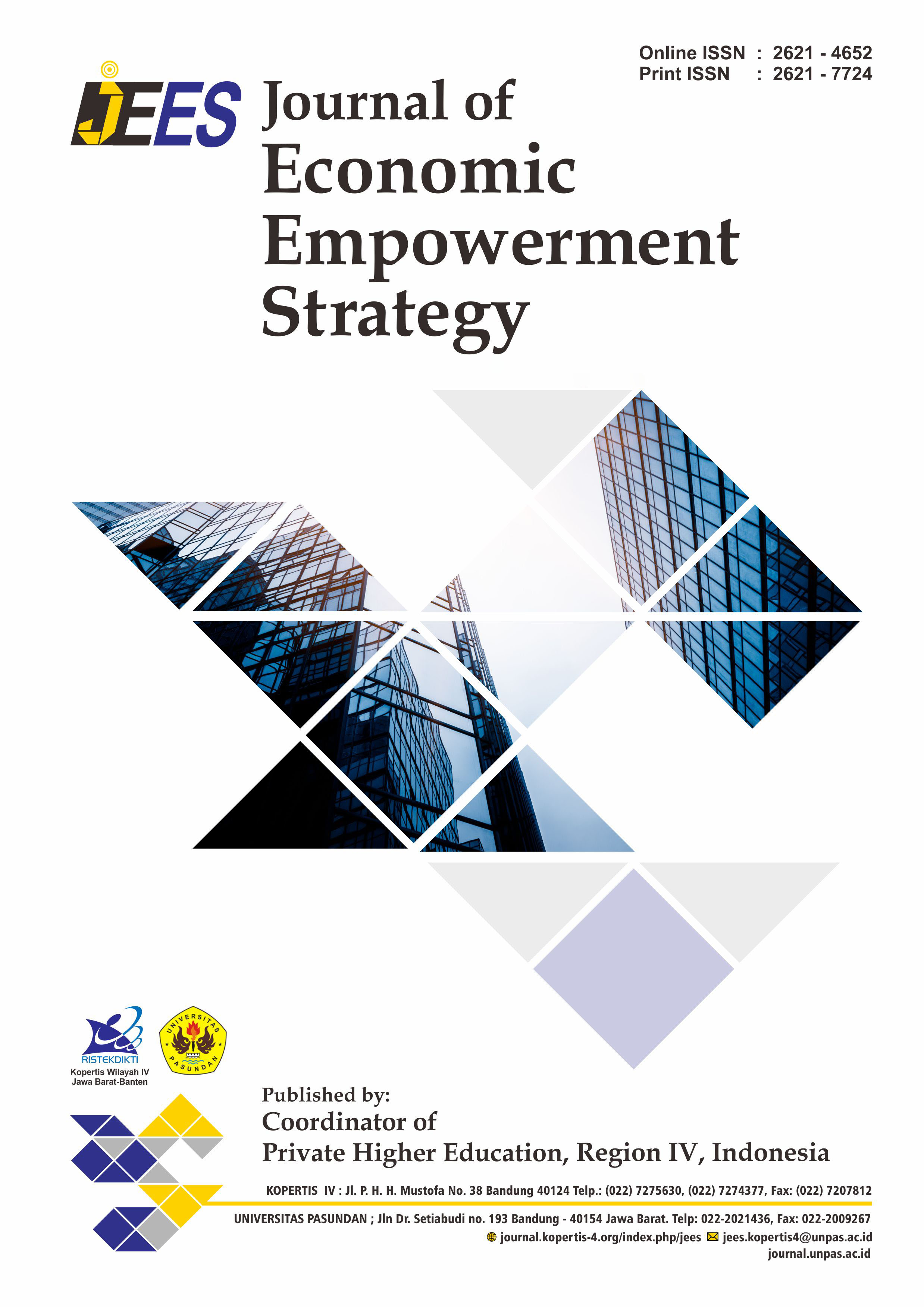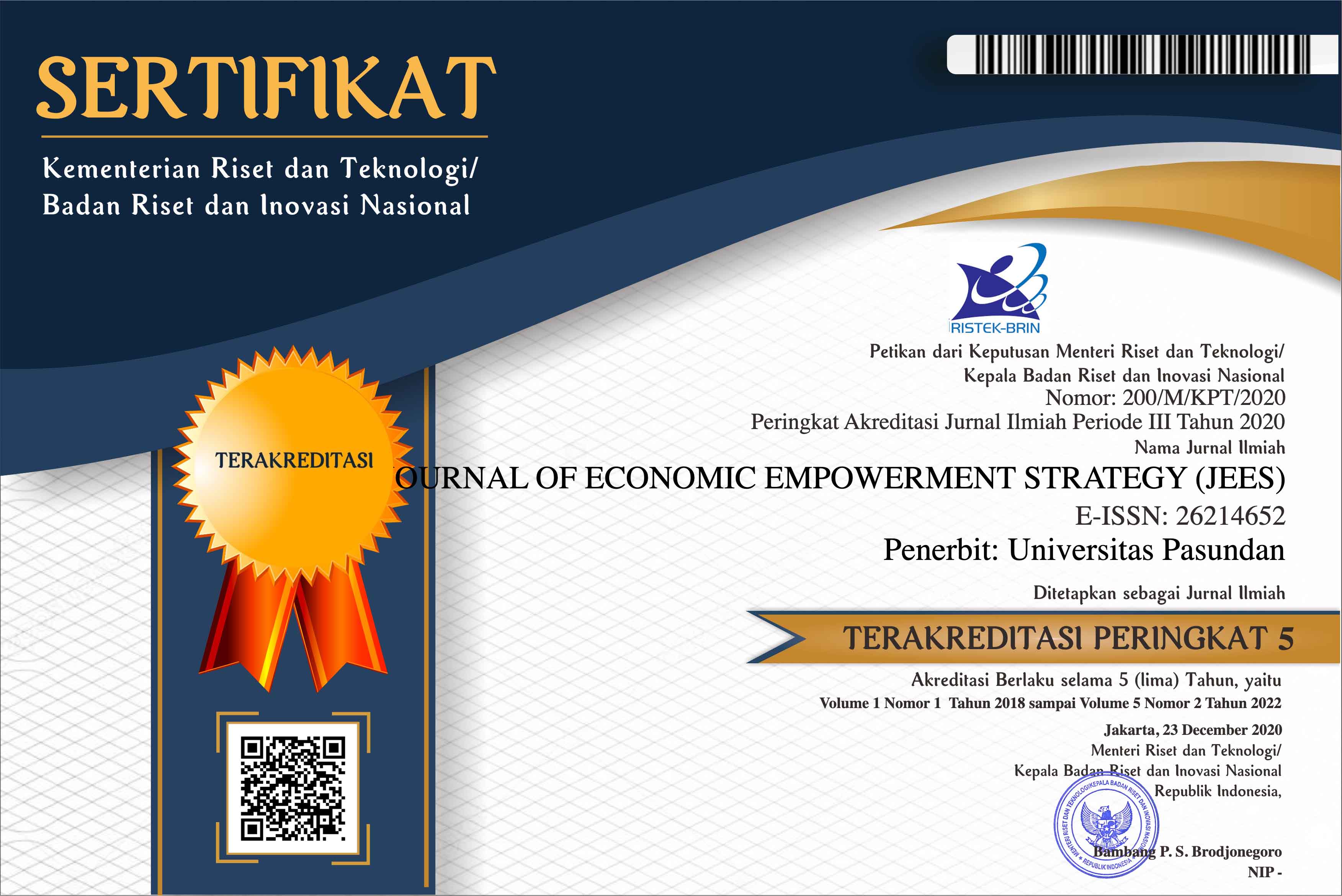EMPOWERING DISABILITIES THROUGH SKILLS BATIK IN CENTER GRIYA HARAPAN SOCIAL SERVICES FOR THE DISABLED, SOCIAL SERVICES OF WEST JAVA PROVINCE
DOI:
https://doi.org/10.23969/jees.v8i2.24041Keywords:
Empowerment Disability,Batik Skills , Social WelfareAbstract
People with disabilities often face challenges in fulfilling their rights, including the right to work and a decent living. This study aims to describe the empowerment of people with disabilities
through batik skills at the Social Service Center. Home Hope Disabled Service Social Province Java
West. Method study Which The method used was a qualitative approach with data collection
techniques in the form of observation, in-depth interviews, and document studies. The results of the
study indicate that batik training has a positive impact on increasing economic independence by
providing opportunities for people with disabilities to produce products with marketable value,
thereby increasing income and financial independence. Furthermore, the support provided in this
empowerment helps build self-confidence and enables them to participate more actively in society.
This empowerment also serves as an inclusive platform that supports the development of their
potential. Empowerment is carried out with a comprehensive approach that involves improving
skills, providing resources, opportunities, and knowledge, as well as strengthening individual
capacity to overcome the social and economic inequalities they face. Through the provision of batik
skills, people with disabilities are empowered to take control of their own lives, improve their
economic well-being, and actively participate in society. In addition, they also receive various
facilities such as additional training in computer training and digital marketing training , as well as
support in the form of wages, food allowances, housing, and social guidance. With empowerment
through batik skills, people with disabilities can more empowered in undergo life socialize.
Empowerment This not only provide technical skills, but also create an environment that supports
integration social And development self person with disabilities disability. Study This highlight the
importance of ongoing support and inclusive empowerment programs to improve the welfare of people with disabilities.
Downloads
References
Az-Zahra, A., & Hamid, A. (2022). Empowerment Person with disabilities Physical Disabilities
Through Skills Programs In orphanage Social Build Daksa Budi Bhakti West Jakarta. Journal
of Social Work and Social Services , 3 (2), 86–95.
Creswell, JW (2015). Qualitative research and research design: choosing among five approaches.
(5th ed.). Student Library.
Islam, AD, Timorochmadi, F., Fakhrudin, MY, Yoseptry, R., Ratnawulan, T., & Rahayu, NS (2024). Fulfilling Educational Needs for People with Disabilities in Bandung City. Journal of Education and Entrepreneurship , 12 (1), 362 377. https://doi.org/10.47668/pkwu.v12i1.1 175
Khasanah, IA, Ningrum, E., & Djatmiko, A. (2023). Implementation of Banyumas Regency Regional
Regulation Number 19 of 2014 concerning Protection and Services for Persons with Disabilities
(Specifically Fulfillment of Health Rights for Persons with Multiple Disabilities).
Wijayakusuma Law Review , 5 (1), 38–46.
https://doi.org/10.51921/wlr.v5i1.234 Poerwanti, S.D., Makmun, S., & Dewantara,
AD (2024). The Long Road to Digital Inclusion for People with Disabilities in Indonesia. Journal of
Urban Sociology , 1 (1), 44. https://doi.org/10.30742/jus.v1i1.3536
Rachmawati, S., & Muhtadi, M. (2020). Soft Skills Empowerment Strategy for People with
Disabilities at Deaf Caede and Car Wash Cinere Depok West Java. Journal of Community
Empowerment , 8 (2), 148. https://doi.org/10.37064/jpm.v8i2.827 5
Suharto, E. (2014). Building Communities Empowering People (A. Gunarsa (ed.); 5th). PT Refika
Aditama.
Yenadin, RP, Nugroho, WB, & Kamajaya, G. (2024). Empowerment of Disabled Workers “Deaf Friends” at Inklusiv Warung, Canggu . 1 (5), 37–51.














